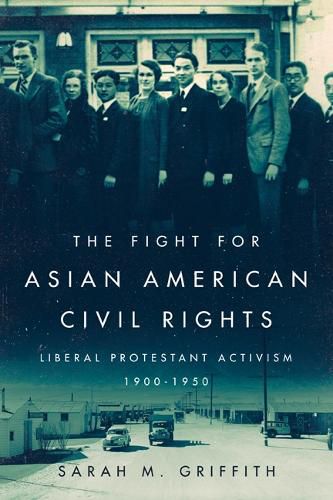Readings Newsletter
Become a Readings Member to make your shopping experience even easier.
Sign in or sign up for free!
You’re not far away from qualifying for FREE standard shipping within Australia
You’ve qualified for FREE standard shipping within Australia
The cart is loading…






From the early 1900s, liberal Protestants grafted social welfare work onto spiritual concerns on both sides of the Pacific. Their goal: to forge links between whites and Asians that countered anti-Asian discrimination in the United States. Their test: uprooting racial hatreds that, despite their efforts, led to the shameful incarceration of Japanese Americans in World War II. Sarah M. Griffith draws on the experiences of liberal Protestants, and the Young Men’s Christian Association in particular, to reveal the intellectual, social, and political forces that powered this movement. Engaging a wealth of unexplored primary and secondary sources, Griffith explores how YMCA leaders and their partners in the academy and distinct Asian American communities labored to mitigate racism. The alliance’s early work, based in mainstream ideas of assimilation and integration, ran aground on the Japanese exclusion law of 1924. Yet their vision of Christian internationalism and interracial cooperation maintained through the World War II internment trauma. As Griffith shows, liberal Protestants emerged from that dark time with a reenergized campaign to reshape Asian-white relations in the postwar era.
$9.00 standard shipping within Australia
FREE standard shipping within Australia for orders over $100.00
Express & International shipping calculated at checkout
From the early 1900s, liberal Protestants grafted social welfare work onto spiritual concerns on both sides of the Pacific. Their goal: to forge links between whites and Asians that countered anti-Asian discrimination in the United States. Their test: uprooting racial hatreds that, despite their efforts, led to the shameful incarceration of Japanese Americans in World War II. Sarah M. Griffith draws on the experiences of liberal Protestants, and the Young Men’s Christian Association in particular, to reveal the intellectual, social, and political forces that powered this movement. Engaging a wealth of unexplored primary and secondary sources, Griffith explores how YMCA leaders and their partners in the academy and distinct Asian American communities labored to mitigate racism. The alliance’s early work, based in mainstream ideas of assimilation and integration, ran aground on the Japanese exclusion law of 1924. Yet their vision of Christian internationalism and interracial cooperation maintained through the World War II internment trauma. As Griffith shows, liberal Protestants emerged from that dark time with a reenergized campaign to reshape Asian-white relations in the postwar era.